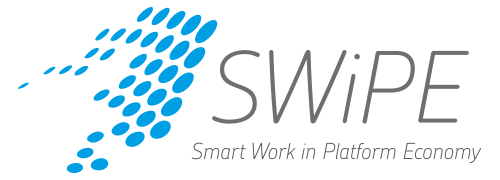A digital platform can be defined to be akin to a virtual marketplace where actors, not directly dependent on the platform supplier, meet and engage with one another. The phenomenon is as old as organised interaction between people. What is new now, is the way in which digitalisation through ever-present networked devices has “turbocharged” the phenomenon (see, Evans & Schmalensee 2016, Matchmakers: The New Economics of Multisided Platforms, Harvard Business Review Press).

Joining a platform requires signing up to its terms and its functionality, after which the participant is free to decide whether to remain on-board (platforms can of course be closed to a limited group, but this discussion is limited to open platforms). When does one then join a platform? Most likely when:
- The platform reduces some significant barrier or cause of friction, that hinder the actor should they remain outside the platform. For example, price setting and the scarcity of service providers are sources of friction in the market for taxi services. Uber has changed the way prices and availability are determined and has reduced some of the friction that customers face. However, a traditional taxi entrepreneur may not want to join the platform as their incomes are tied to the frictions and barriers of the traditional taxi market.
- The platform broadens or deepens the market. This can happen in a number of e.g. micro-markets, that without a platform would function imperfectly. For example, the market for antique dolls might in a small town be limited to children, but through eBay or tori.fi the seller can reach collectors on a national level.
- The platform creates trust, that would not exist otherwise. An Uber and a ‘dark’ or unlicensed taxi are in some senses alternatives for one another, but Uber solves many of the problems of unlicensed taxi services. For one, in the case of Uber both the driver and the customer are in a dynamic relationship where they have information regarding each other’s history and are interested in how that history accumulates through future interactions. TripAdvisor-type services on the other hand outsource/disperse/divide the responsibility for monitoring. At the minimum through its brand, but often through an explicit guarantee the platform alleviates barriers to trust between parties. For example, on freelance work platforms such as UpWork customers pay only for work that is conducted to an acceptable standard.
It is in the nature of digitalisation that the value of the platform is greatest in those markets where information in its different forms is either directly the subject of exchange or is central to helping an exchange take place.
Author: Petri Rouvinen is an Economist and PhD. He is Research Director at ETLA – the Research Institute of the Finnish Economy – and the CEO of Etlatieto. Petri specialises in innovation activity, technology, competitiveness, globalisation and entrepreneurship.
Read more about Research Director Petri Rouvinen, his research and areas of expertise.
